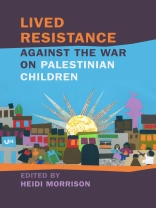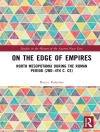Despite the increasing volume of scholarship that shows children as political actors, prior to this book, a cohesive framework was lacking that would more fully examine and express children’s relationship with political power. Rather than simply hitching children’s resistance to standard theories of resistance, Heidi Morrison seeks to meet children on their own terms.
Through the case study of Palestinian children, contributors theorize children’s resistance as an embodied experience called lived resistance. A critical aspect of the study of lived resistance is not just documenting what children do but specifically how scholars approach the topic of children’s resistance. With Lived Resistance against the War on Palestinian Children, the authors account for the vessel (i.e., the body in flesh and mind) through which such resistance generates and operates.
The diverse group of chapter authors examine Palestinian children’s art and media, imprisonment, parenting experiences, bereavement, neoliberalism, refugee camps, and protest movements as aspects of their collective and individual political power. Through these outlets, the book shows consistencies and contends that these children’s relationship to political power operates from an inclusive model of citizenship and is social justice oriented, symbolically oriented, and contingently based.
Sobre el autor
HEIDI MORRISON is associate professor of history at the University of Wisconsin – Lacrosse. She is author or editor of five books including Inner Wounds: Oral Histories of Palestinian Children’s Trauma and the Second Intifada; Childhood and Colonial Modernity in Egypt; and A Cultural History of Youth.












